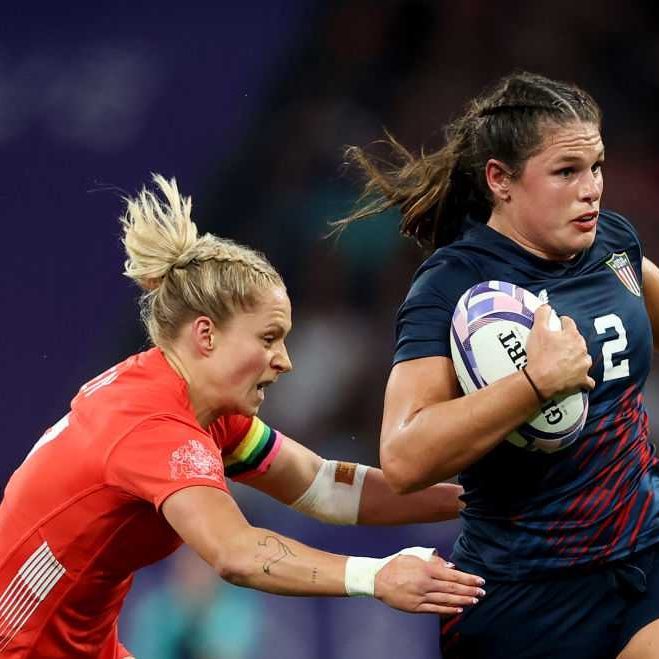The growth of women’s rugby on the global stage has gained significant traction in recent years, culminating in its inclusion in the Olympics. The Women’s Rugby Olympics, specifically the rugby sevens format, has become a celebration of athleticism, teamwork, and empowerment. Female athletes from various countries come together to showcase their skills and passion for the sport. In this article, we will delve into the history of women’s rugby in the Olympics, highlight some of the most inspiring female athletes, discuss the impact of the sport on gender equality, and explore the future of women’s rugby Olympics.
The Evolution of Women’s Rugby in the Olympics
Historical Context
Women’s rugby has a rich history that predates its Olympic debut. The sport began to gain traction in the late 20th century. In 1991, the first Women’s Rugby World Cup was held in Wales, marking a significant step towards the recognition of women in the sport. Though the women’s game developed steadily, it faced many challenges, including limited visibility and funding.
Rugby sevens, a faster and more dynamic version of rugby, gained popularity in the early 2000s. Its Olympic inclusion was first proposed to the International Olympic Committee (IOC) in 2009. After much anticipation, women’s rugby sevens was officially added to the Olympic program in 2016 for the Rio de Janeiro Games, marking a pivotal moment in the sport’s history.
Olympic Debut
The Rio 2016 Olympics showcased the inaugural women’s rugby Olympics sevens tournament. It was a groundbreaking event, and the excitement around it drew much attention. The tournament featured some of the world’s best national teams, and the athleticism on display captivated audiences. The event brought a new level of recognition to women’s rugby and inspired many young girls to take up the sport.
The event also emphasized the importance of equality in sports. With many nations fielding competitive teams, the tournament illustrated the growth of women’s rugby and its potential on the world stage. The successful debut highlighted the need for continued investment and support for women’s sports while paving the way for future Olympic tournaments.
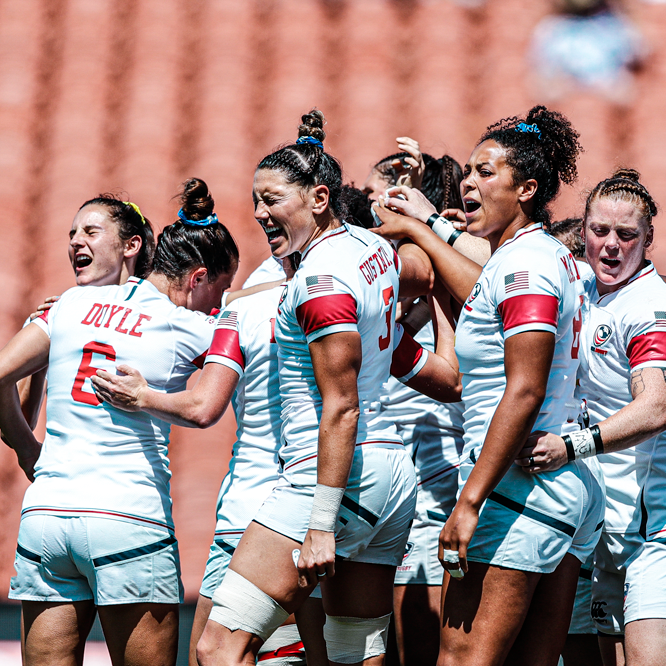
Inspiring Female Athletes of Rugby
Pioneers of the Game
Throughout the years, many female athletes have made significant contributions to women’s rugby, paving the way for future generations. One notable pioneer is Maggie Alphonsi from England. A World Cup winner and a member of the Rugby Hall of Fame, she has advocated for women in sports and used her platform to inspire young female athletes.
Another prominent figure is Portia Woodman from New Zealand. Woodman has made her mark in the sport with her exceptional speed and skill. In the 2017 Rugby Women’s World Cup, she scored an incredible seven tries in a single match. Her achievements have made her a role model not only in New Zealand but worldwide.
Current Stars Making an Impact
In addition to the pioneers, there are many current stars who are inspiring the next generation of female athletes. One of these athletes is Charlotte Caslick from Australia. Known for her incredible agility and playmaking skills, Caslick has garnered numerous awards, including the World Rugby Sevens Player of the Year in 2016. Her contributions have not only helped her team in competitions but have also sparked greater interest in women’s rugby in Australia.
Another athlete making waves is Sarah Hirini from New Zealand. As one of the captains of the New Zealand women’s rugby sevens team, she led her squad to triumph in numerous tournaments. Hirini’s leadership and dedication to the sport emphasize teamwork and drive, making her an inspiring figure in the rugby community.
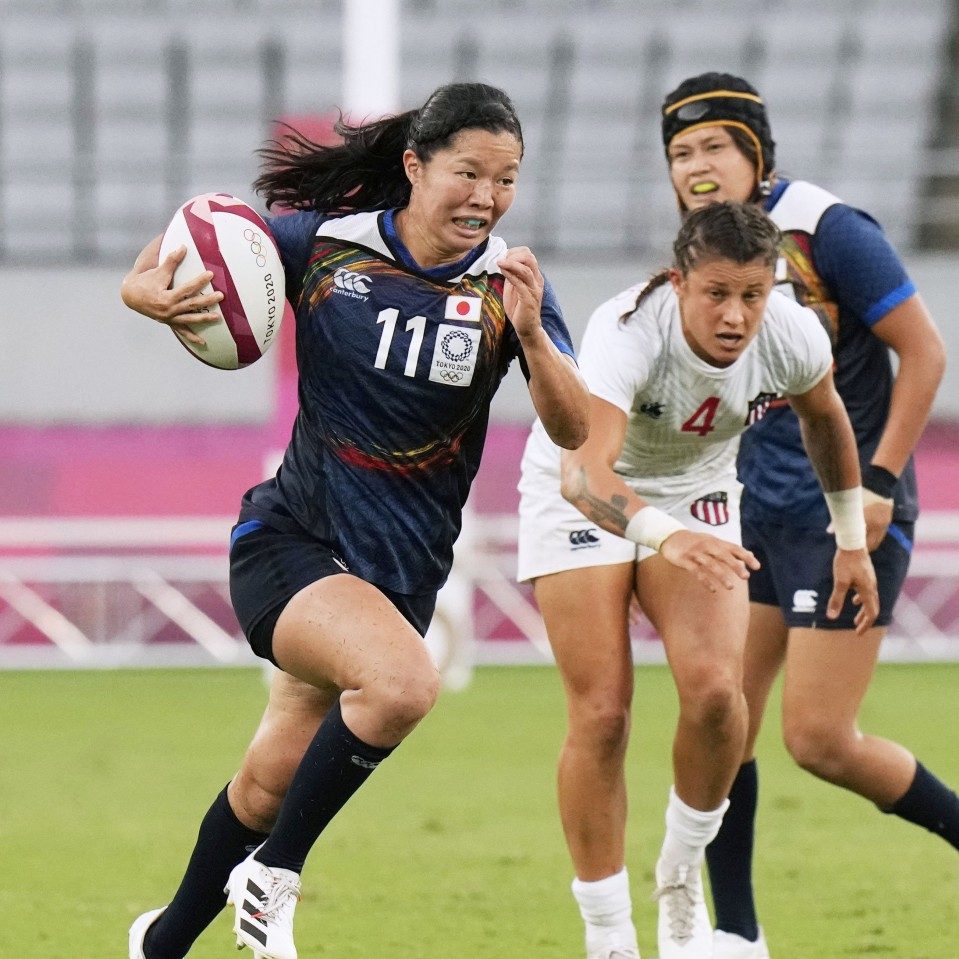
The Impact of Women’s Rugby on Gender Equality
Breaking Barriers in Sports
Women’s rugby plays a crucial role in breaking traditional barriers in sports. The visibility of female athletes on a global stage helps challenge stereotypes and promotes gender equality. With the participation of women in rugby, there is an ongoing effort to encourage more girls and young women to participate in sports.
The Olympic Games have provided a平台 for women’s rugby to gain recognition and respect. The support from national governing bodies, sponsors, and media outlets has increased. This visibility enables women’s rugby to thrive and paves the way for future opportunities in sport.
Promoting Inclusivity and Empowerment
Women’s rugby promotes inclusivity and empowerment not only within the sport but also in society. By participating in rugby, female athletes build confidence and teamwork skills. These attributes extend beyond the field, aiding in personal and professional development.
The presence of women on the rugby field fosters a sense of camaraderie. This sense of belonging encourages individuals to support one another and share their experiences. The concept of empowerment resonates across various cultures, showcasing the universality of women’s rugby.
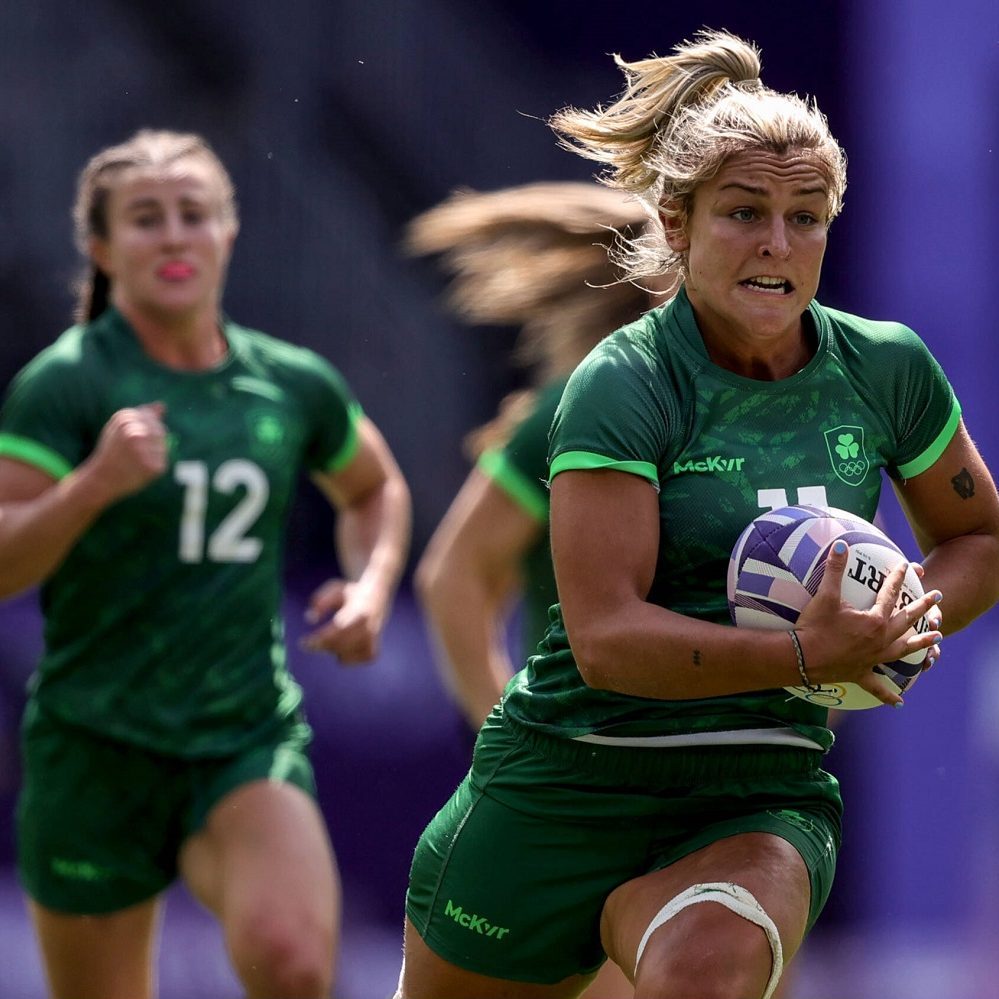
Opportunities and Challenges in Women’s Rugby
Growth of Programs and Initiatives
As women’s rugby gains momentum worldwide, various programs and initiatives have emerged to support female athletes. National governing bodies are recognizing the need for investment in women’s teams and development programs. Increased resources are leading to better training, coaching, and facilities for women.
Scholarships and grants are becoming more accessible for aspiring female rugby players. Many universities and clubs are creating pathways for women to pursue rugby at a competitive level. Such opportunities ensure that young athletes can develop their skills and potentially represent their countries on an international stage.
Addressing Ongoing Challenges
Despite the progress made, challenges remain for women in rugby. One significant issue is the disparity in funding and sponsorship compared to men’s rugby. While many countries are improving their support for women’s teams, a gap persists that hinders overall growth.
Additionally, there are ongoing conversations about ensuring equitable representation in decision-making roles within rugby organizations. Women’s voices must be heard and valued in shaping the future of the sport. Addressing these challenges is crucial for creating a thriving environment that empowers female athletes.
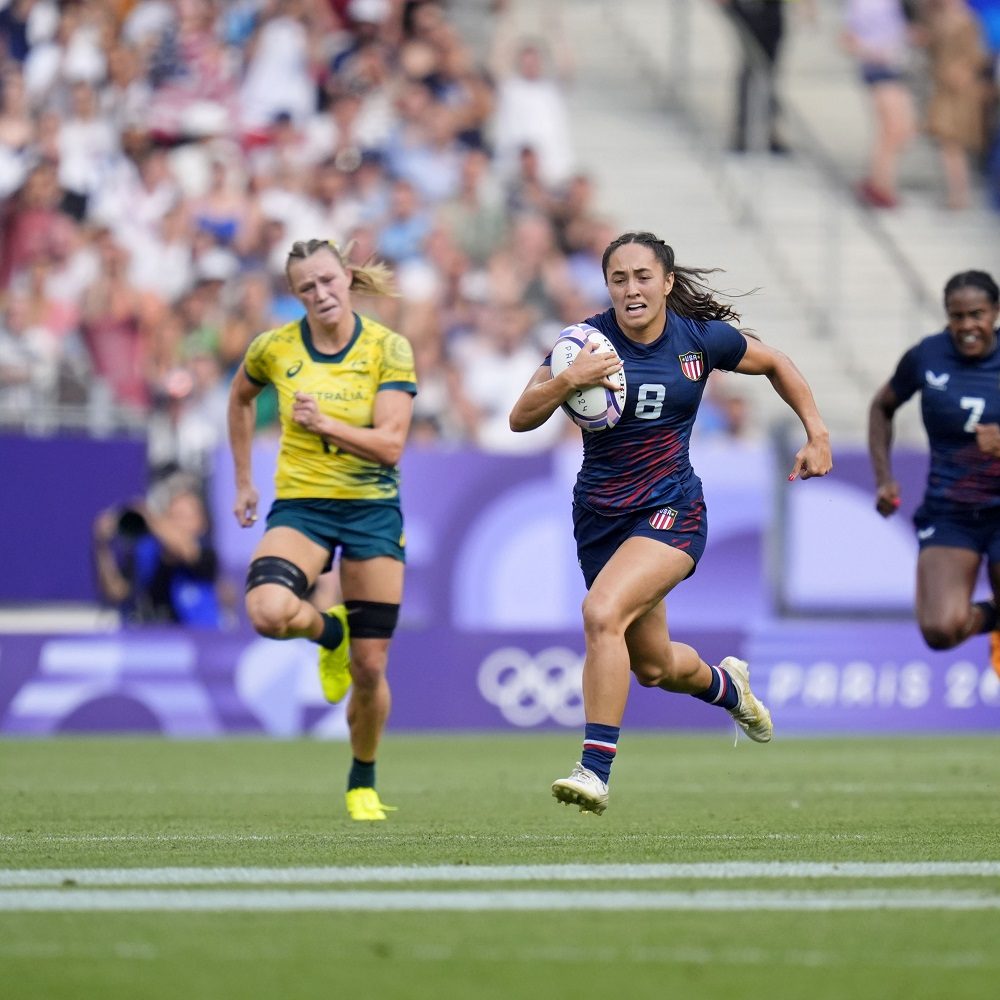
The Future of Women’s Rugby in the Olympics
Expansion of the Olympic Format
The success of women’s rugby sevens in the Olympics has sparked discussions about the future of the sport’s inclusion in international events. The International Rugby Union is exploring the potential for expanding the tournament to include more teams and create more competitive opportunities.
Increased participation from countries around the world is essential for growth. The Olympics provides a platform to showcase talent while motivating nations to invest in their women’s rugby programs. A more extensive and competitive tournament can help ensure the sport’s sustainability and prominence.
Enhancing Exposure and Media Coverage
Another area with immense potential for women’s rugby is media exposure. Broadcasting women’s rugby events can elevate the sport and attract new fans. Increased coverage leads to greater visibility for athletes, allowing them to connect with audiences and grow the sport’s popularity.
Digital platforms have revolutionized how fans access sports content. By utilizing social media, women’s rugby can reach new audiences, engage with fans, and offer behind-the-scenes glimpses into athletes’ lives. Investing in media coverage creates lasting impact and encourages the growth of women’s rugby.
Inspirational Stories Beyond the Field
Community Engagement and Advocacy
Many female rugby players are involved in initiatives that support their communities. Using their platforms, they advocate for social change, empowerment, and healthy lifestyles. Programs aimed at youth development often feature rugby as a tool for teaching values like discipline, teamwork, and respect.
Players like Scotland’s former captain, Rachel Malcolm, have taken strides in promoting the sport in schools. Initiatives such as these aim to inspire younger generations and provide a pathway for them to become involved in sports.
Personal Triumphs and Growth
Athletes in women’s rugby often share personal stories of triumph that resonate beyond the sport. Many players have overcome adversity, personal challenges, and societal barriers to pursue their dreams. Their resilience serves as an inspiration to others, showcasing the power of determination.
By highlighting these personal experiences, female athletes cultivate a culture of inspiration. They encourage others to push boundaries, break stereotypes, and challenge norms. Their stories create connections that go beyond rugby, helping to empower individuals across various backgrounds and experiences.
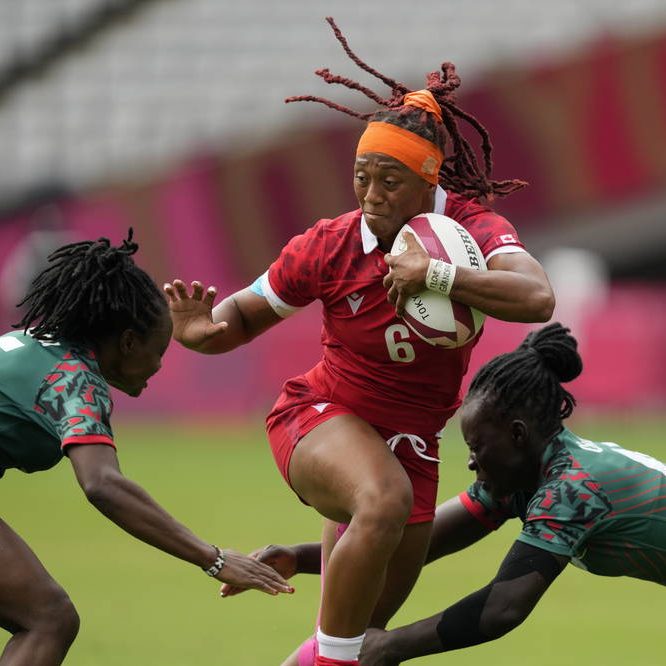
Celebrating Women’s Rugby in the Olympics
The Women’s Rugby Olympics represents a groundbreaking chapter in the history of sports. It not only showcases the athletic prowess of female athletes but also underscores the importance of inclusivity and equality. The inspiring stories of athletes like Charlotte Caslick and Portia Woodman serve as motivating examples for countless young girls worldwide.
As women’s rugby continues to grow in recognition and support, it is vital to address challenges and disparities. By fostering inclusivity, investing in programs, and increasing media exposure, the sport can thrive on an international level.
The future of women’s rugby in the Olympics looks promising. Embracing the values of teamwork, resilience, and empowerment, this dynamic sport offers a valuable platform for inspiring female athletes. As we celebrate women’s rugby, we celebrate not just the sport but also the powerful journey towards equality and recognition in the world of athletics. The celebration of women’s rugby is just beginning, and with sustained effort, it will continue to inspire generations to come.
